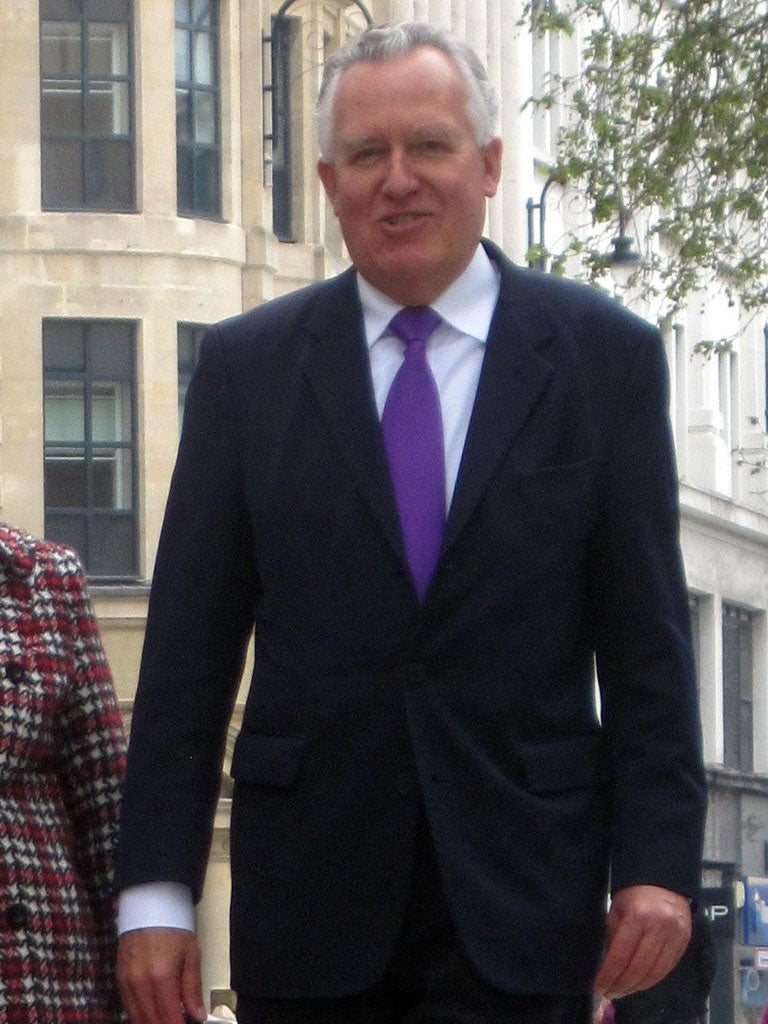No 10 asks ministers: Can we now support £30bn Severn barrage?
The ambitious plan to harness tidal power could generate 20,000 jobs, but concerns remain about the impact on wildlife

David Cameron has ordered ministers to consider backing a £30bn project to harness the tidal power of the Severn estuary, as the Government scrambles to find big infrastructure projects that could help kick-start growth.
The Prime Minister has asked Ed Davey, the Lib Dem Energy Secretary, and Oliver Letwin, the Tory policy chief, to look in detail at a new proposal for a barrage which, supporters claim, could limit the environmental impact on world-famous wildlife habitats.
With the potential to create 20,000 jobs, it is exactly the sort of big-ticket construction project that the coalition needs to find as George Osborne faces a growing clamour to change economic course.
Mr Davey is to consider the details of the Severn barrage plan. However, The Independent on Sunday has learnt that the Liberal Democrats, uneasy about the lack of growth, are to call on the Chancellor to authorise additional public borrowing to fund a wide range of green-energy schemes. Mr Davey's aide, Duncan Hames, has drawn up a policy to this effect.
The idea of a Severn barrage was rejected by the coalition in 2010, which argued there was "no strategic case at this time for public funding of a scheme to generate energy in the Severn estuary".
But Mr Cameron has been persuaded that the long-debated idea of a barrage is worth reconsidering, because the consortium Corlan Hafren says no state funding is required. Instead, investors from Kuwait, Qatar and a number of sovereign wealth funds have expressed support for the idea. However, the project would rely on green energy subsidies paid to wind and solar plants, which add to customers' bills.
Securing government support is crucial, because time would need to be found for legislation to pass through Parliament. Peter Hain, the former Labour cabinet minister, quit his frontbench role earlier this year to champion the project. He has offered to pilot a bill through the Commons, which Mr Cameron has agreed to study.
"Tidal power is the only lunar energy source," Mr Hain said in a letter to Mr Cameron. "Tides can be forecast for years in advance, and therefore tidal power is highly predictable and consistent."
Stretching up to 18 kilometres from Brean on the north Somerset coast to Lavernock Point in South Wales, the scheme, Corlan Hafren claims, could provide 5 per cent of the UK's energy needs, saving one million tonnes of carbon every year. It could generate power for 120 years.
The project is thought to include 1,000 turbines. The Severn estuary has a tidal range of 14 metres, which engineers have contemplated harnessing since the middle of the 19th century.
Following a presentation from Corlan Hafren in Downing Street, a No 10 source said: "It is a big infrastructure project promoting a more diverse form of energy and providing a lot of jobs, but there are environmental concerns, too."
Conservationists say that, in theory, the ideas proposed by the consortium could alleviate some of the environmental impact. They include having a barrage with a lower head, holding back less of the tidal range, creating a smaller lake and therefore limiting the damage to the banks of the estuary. The turbines would also operate more slowly and under less pressure, which could reduce the impact on fish. And power would be generated on both the ebb and flow of the tide.
Kate Jennings, head of protected areas at the Royal Society for the Protection of Birds, said the charity remains "sceptical about the ability to deliver a development on the scale of a barrage without having unacceptable impacts on the Severn". But she welcomed the fact that the consortium is "at least trying to build in environmental considerations".
The Lib Dem conference next month will adopt a policy calling for additional investment in green energy schemes, funded by additional debt. A motion drawn up by Mr Hames states: "We would expand the Green Investment Bank's scale and remit as fast as possible. We believe that the Green Investment Bank's borrowings should not be considered part of the national debt."
Join our commenting forum
Join thought-provoking conversations, follow other Independent readers and see their replies
Comments
Bookmark popover
Removed from bookmarks